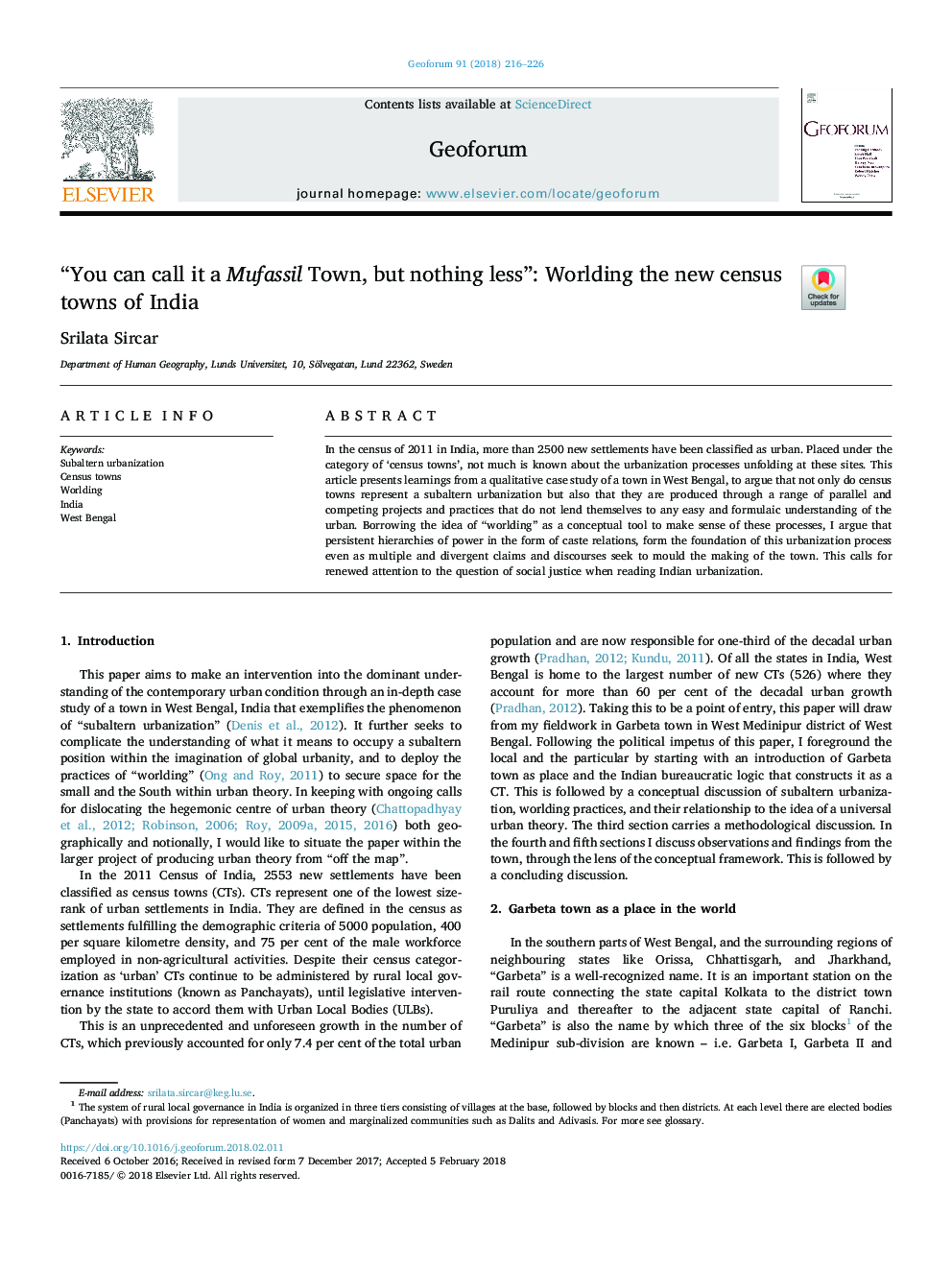| Article ID | Journal | Published Year | Pages | File Type |
|---|---|---|---|---|
| 7353656 | Geoforum | 2018 | 11 Pages |
Abstract
In the census of 2011 in India, more than 2500 new settlements have been classified as urban. Placed under the category of 'census towns', not much is known about the urbanization processes unfolding at these sites. This article presents learnings from a qualitative case study of a town in West Bengal, to argue that not only do census towns represent a subaltern urbanization but also that they are produced through a range of parallel and competing projects and practices that do not lend themselves to any easy and formulaic understanding of the urban. Borrowing the idea of “worlding” as a conceptual tool to make sense of these processes, I argue that persistent hierarchies of power in the form of caste relations, form the foundation of this urbanization process even as multiple and divergent claims and discourses seek to mould the making of the town. This calls for renewed attention to the question of social justice when reading Indian urbanization.
Keywords
Related Topics
Social Sciences and Humanities
Economics, Econometrics and Finance
Economics and Econometrics
Authors
Srilata Sircar,
